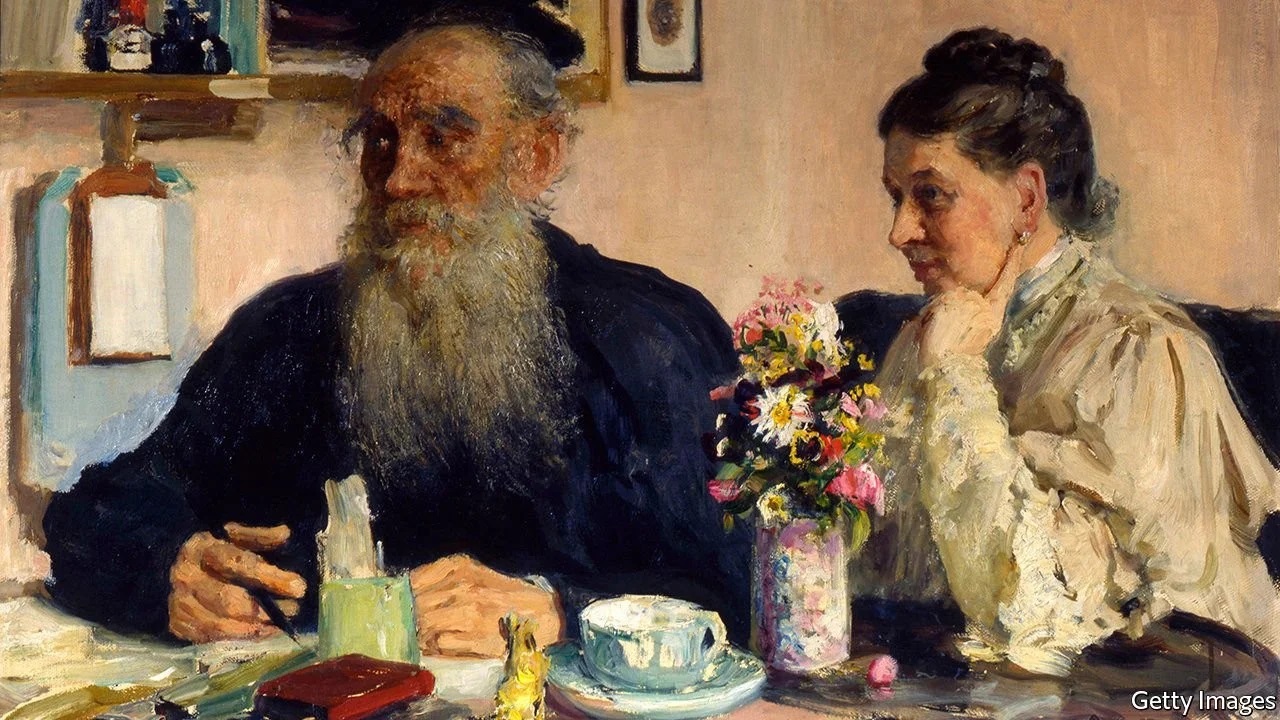Leo Tolstoy Archive
Written: 1862
Source: From RevoltLib.com
Transcription/Markup: Andy Carloff
Online Source: RevoltLib.com; 2021

The teacher brings his story to a close, and all arise from their places, and, gathering around the teacher, trying to outshout each other, they begin to tell all that they can remember.
The noise of their voices becomes terrible. The teacher does his best to bring them to quiet. Those who are forbidden to tell what they know so perfectly, are not to be restrained in that way; they hasten to another teacher, or if one is not present, to one of their mates, or to any stranger, even to the stove-tender; they go in twos and threes, rushing from one room to another, in search of some one to hear them. Sometimes one will tell it all by himself. Others form groups of various numbers, and rehearse it, prompting, making additions, and correcting one another.
"Now let me say it to you!" says one to another; but the one addressed knows that the other has not the ability, and sends him on to some one else. As soon as they have all said it, they gradually come to order; the candles are lighted, and by this time the boys have come into a different mood.
In the evening, as a general rule, and in the succeeding classes, there is less disturbance, less shouting, more amenity and obedience to the teacher.
There is noticeable a general distaste for mathematics and analysis, and a taste for singing and reading, and especially for stories. What is the good of mathe matics and writing? tell us about geography, or even history, and we will listen!" they say.
By eight o'clock eyes begin to grow weary; yawns become frequent; the lights burn more dimly; they snuff the candles less frequently than before; the older scholars hold out, but the younger ones, leaning their elbows on the table, fall asleep lulled by the pleasant sound of the teacher's voice.
Sometimes, when the classes have been interesting, and there have been many of them, for oftentimes the school lasts seven long hours, and the children have become tired, or it is just before a holiday, when at home the oven has been heated for the bath, suddenly, without saying a word, two or three boys, during the second or third class after dinner, will come running into the room, and hastily remove their hats.
"Where are you going?"
"Home."
"But how about lessons? there 's the singing."
"But the boys say it 's time to go home," says the lad, twisting his cap.
"But who says so?"
"The children have gone."
"How is that! how is that!" exclaims the teacher, dumbfounded, for he is always ready for his other lessons. "Hold on!"
But into the room rushes another lad, with eager, important face.
"What are you waiting for?" he asks angrily of the one who has been detained, and is irresolutely picking the wool from his sheepskin cap. "The bo-oys have all started on! they are as far as the blacksmith's."
"Gone?"
"Yes, gone!" and both start off on the run, shouting as they reach the door, "Good-by, Ivan Ivanovitch."
And who are those boys who have decided to go home as they have?
God only knows. You would never find out who advised the step. They held no consultation, made no harangue, but still these children decided to go home.
"The boys are going!" and they pound their heels on the steps; another leaps like a cat down the porch, and, sliding and tumbling through the snow, and chasing each other along the narrow path, the children run home with merry shouts. Such things happen once or twice a week.
This is mortifying and unpleasant for the teacher, who does not approve of this, but who also does nor take into consideration that in consequence of just this one incident how much greater significance attaches to the five, six, and even seven lessons a day, which are assigned to each class, and which the pupils freely and of their own accord attend.
Only by the repetition of such incidents can it be decided that the instruction, though it be insufficient and one-sided, is not absolutely bad and injurious. Suppose the question be thus propounded: Which is better, that in the course of a year there should be no such incident, or that these incidents should cover half of the lessons? We should choose the latter alternative.
I, at least, in the Y. P. school, have been delighted when these incidents have recurred several times a month. Notwithstanding the fact that the children were frequently assured that they might go wherever they pleased, the influence of the teacher is so powerful that I have feared, of late, lest the discipline of the classes, of the roster, and the marks might imperceptibly curb their freedom so that they would wholly subject themselves to the craftiness of our cunningly baited net of order, and thus lose the possibility of choice and protest.
If they continue to come willingly, in spite of the freedom allowed them, I should never think that this pointed to any peculiar qualities of the Y. P. school, for I think that the same results would be obtained in any school, and that the desire for learning is so strong in children generally, that in order to gratify this desire they will submit themselves to many trying conditions, and will pardon many faults.
The latitude granted them for such escapades is useful and indispensable as a means of assuring the teacher from very great and serious mistakes and abuses.